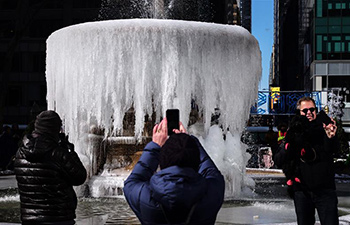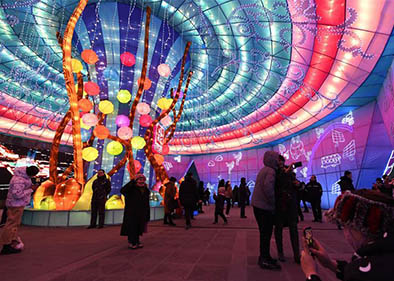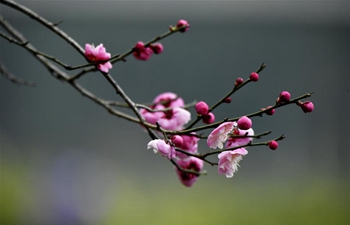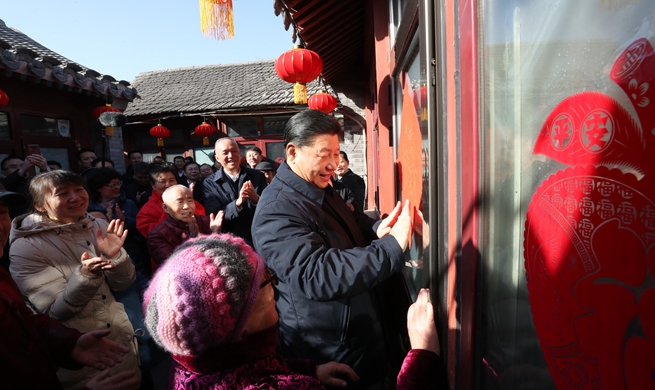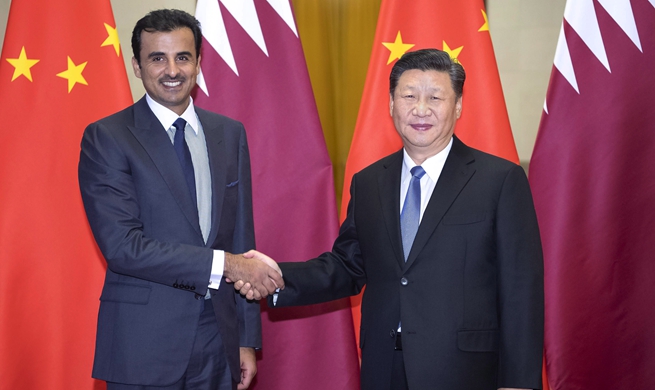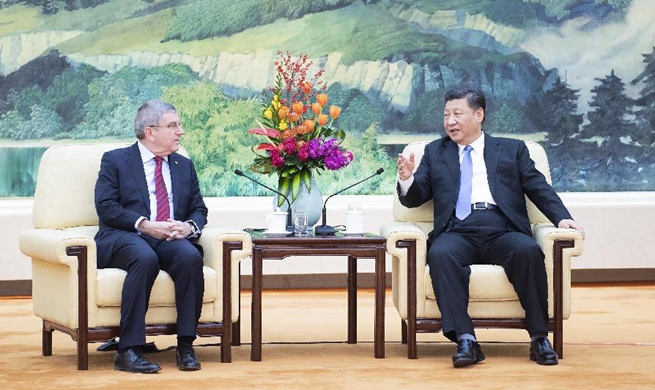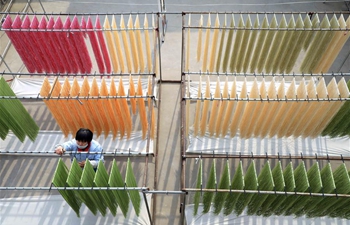LONDON, Feb. 1 (Xinhua) -- Ian Blatchford, director of the Science Museum in London, has hailed in a recent interview with Xinhua the scientific research collaboration between China and Britain as "a perfect two way genuine collaboration", as scientific joint efforts between the two sides are increasing in recent years.
"The British are investing in Chinese science and the Chinese are investing in Britain's, so it's a perfect two way genuine collaboration," said Blatchford.
Blatchford is also the director and chief executive of the Science Museum Group, which oversees the Science Museum in London, the National Railway Museum in York, the National Science and Media Museum in Bradford, the Science and Industry Museum in Manchester and Locomotion in Shildon.
He said that when he was in Beijing he could see that joint efforts were being made by China and Britain to step up research on a wide variety of scientific fields, and although "not all of them are very glamorous projects like space", these projects are trying to tackle some global challenges.
"For example, one of the greatest challenges the world faces is feeding 10 billion people, and Britain and China very quietly are doing really excellent scientific research on food efficiency, and this is a very good example," said Blatchford.
Both China and Britain are also providing funding support to research projects related to antibiotic resistance.
As part of the efforts, the Science Museum Group is working with its counterparts in China to bring an exhibition on antibiotic resistance to four Chinese cities to show local people how this global issue is being tackled through scientific collaboration, and what individuals can do, according to Blatchford.
"One of the greatest challenges we face as human beings is superbugs, so for years we've survived because of antibiotics," said Blatchford. "Britain and China are both doing research on the future of antibiotics, so I'm very proud of that."
The Science Museum in London is also planning to stage more Chinese themed exhibitions and events in the coming seasons, according to the museum chief.
"This museum is devoted to celebrating the past, present and future achievements of great civilizations, especially in the fields of science and technology, and China is a vital part of that vision: its ancient culture, and remarkable achievements in recent decades," said Blatchford in a speech delivered at a recent event.
As for the future of China and Britain's science, Blatchford sees great promise in young talents.
The Science Museum is next door to the Imperial College London, where many Chinese students are studying. Some of them are working on projects supported by the two countries.
There are enormous numbers of Chinese students now studying in subjects such as medicine, engineering and mathematics in London's universities and institutions, and "what we find is that not only are they learning but also their diligence and enthusiasm is raising the standards generally in the universities that they are part of," said Blatchford.


